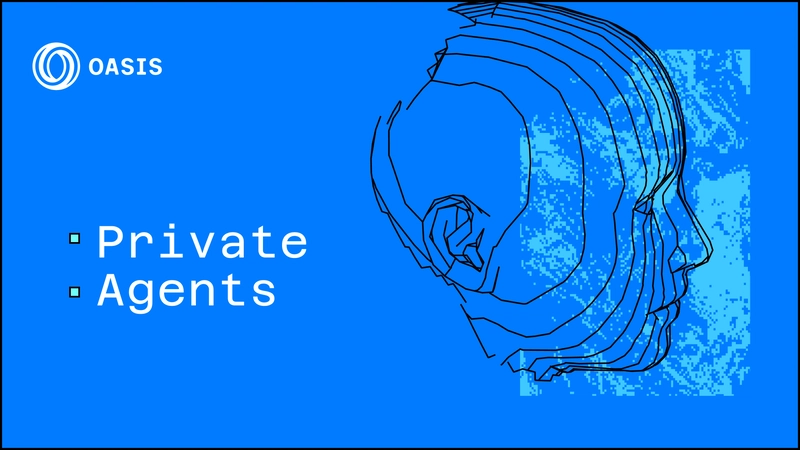AI-powered agents are becoming a critical part of Web3, think DeFi strategies, healthcare models, and automated decision-making systems. But here's the problem: AI models handle highly sensitive data that can and will be exposed if not properly secured. And we all know that blockchains are public by default. So how do we fix this?
The Problem: Public Blockchains Aren't Meant for Sensitive Data
When AI agents operate in a Web3 environment, they interact with financial data, user preferences, and sometimes even healthcare information. All of this is visible to anyone on a public blockchain. This lack of confidentiality introduces several risks:
✅ Data Leaks: Sensitive financial data can be exposed, compromising privacy and security.
✅ Model Vulnerabilities: AI models can be reverse-engineered, making them vulnerable to attacks or manipulation.
✅ Unfair Advantage: Competitors could observe transaction patterns and gain insights into proprietary algorithms.
Clearly, AI agents can’t operate securely in Web3 without a privacy layer.
Oasis Sapphire: The Privacy Layer for AI Agents
This is where Oasis Sapphire comes into play. Sapphire is an EVM-compatible, confidential smart contract platform that ensures data remains private while AI models execute logic securely. It leverages Trusted Execution Environments (TEEs) to protect sensitive data and ensure that computations happen confidentially—even if the blockchain itself is public.
How Sapphire Solves the Privacy Problem:
🔐 Confidential Smart Contracts: AI models can operate on encrypted data without exposing inputs or outputs to the public.
🔧 EVM Compatibility: Developers can deploy existing Ethereum smart contracts on Sapphire, with added privacy benefits.
🔒 On-Chain and Off-Chain Privacy: Sapphire secures interactions between smart contracts and external data sources, ensuring sensitive data stays protected.
Real-World Use Cases for AI Agents on Sapphire
✨ AI-Powered Lending Protocols: Assess borrower profiles and offer customized loans without exposing sensitive financial data.
🧠 Fraud Detection Models: Analyze large datasets off-chain, ensuring results are verified and attested on-chain.
🏨 Healthcare AI Models: Enable secure patient data processing for personalized treatments without compromising patient privacy.
Why Developers Should Care
Building AI agents on Oasis Sapphire unlocks a new world of possibilities:
- Reduced Risk: Sensitive data stays encrypted, minimizing attack vectors.
- Easier Deployment: Seamlessly port existing EVM contracts to add privacy.
- Increased Trust: Users can interact with AI agents knowing their data is protected.
Ready to Build Privacy-First AI Agents?
If you're ready to take your AI models to the next level with privacy-first design, Oasis Sapphire is the way to go. Start building today by checking out the Oasis Developer Docs. Let's push the boundaries of what's possible with AI in Web3! 🚀
And to learn more about it give it a read: https://oasis.net/blog/ai-agents-privacy-blockchain
What kind of AI use cases are you thinking of building with privacy in mind? Drop your ideas in the comments! 🔥



Top comments (2)
Privacy is the missing puzzle piece for AI in Web3, and Sapphire seems to be solving it in a way that actually scales. Confidential smart contracts are a game-changer, especially for finance and healthcare use cases. Excited to see more projects leverage this tech!
Before even AI became such a buzzword, Oasis has been busy building primitives for responsible AI. Similarly, the ROFL framework puts Oasis ahead of the curve when it comes to empowering AI agents with privacy features. I think we are only scratching the surface when we talk about applicability of agents in DeFAI (DeFI + AI). The impact can not only encompass web3 but also traditional scenarios which benefit from decentralization and AI applicability. For example, insurance can be streamlined with privacy-enabled AI agents from claims processing to claims settlement.